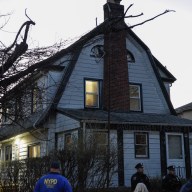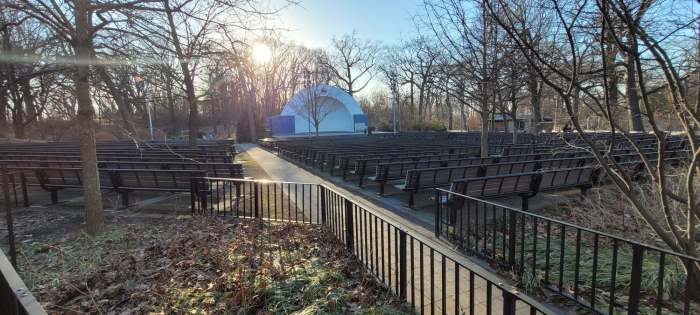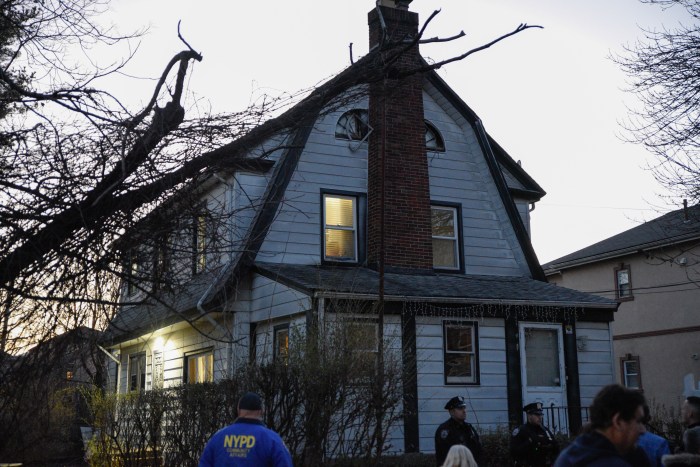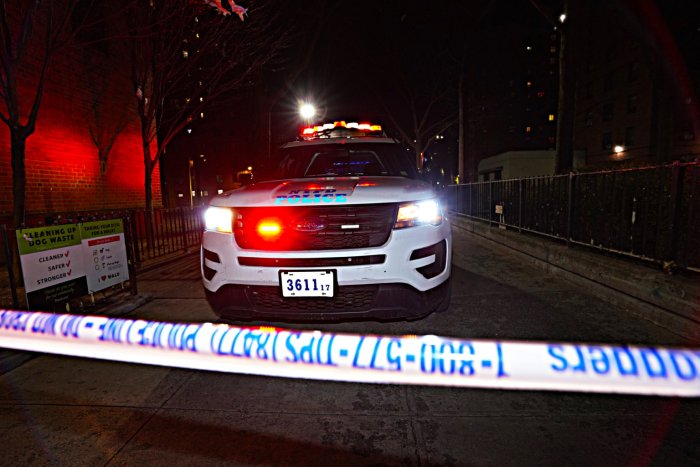By Chris Fuchs
In December, a Chinese-American restaurateur named Tsu Yue Wang went before Community Board 7 to apply for permission to operate a health spa in Flushing. His request was overwhelmingly disapproved by a vote of 34-to-3.
But nearly five months later, in spite of strong opposition from the community board and the Queens borough president, the city has granted Wang a 10-year permit to build and operate the spa on 41st Avenue near Kissena Boulevard. The city agency that issues such permits, the Board of Standards and Appeals, concluded in a 4-to-0 vote May 1 that the spa would violate no zoning ordinances.
At the board meeting, however, zoning issues seemed to take something of a secondary role. For instance, concerns were raised about the spa’s closeness to two churches as well as two schools, about Wang’s inexperience in operating spas, and about what was termed the potential for abuse.
A priest from one of the nearby churches, a city councilwoman’s chief of staff, several Flushing residents and a number of board members all spoke that evening, framing the issue in rather blunt terms: they feared that the spa might evolve into a house of prostitution.
“If a woman massages a man, who knows what’ll go on in there,” Terence Park, a board member and a city council candidate who voted against the application, said in an interview last week.
With the issuing of the permit in early May, concerns among the community in downtown Flushing have surfaced anew.
The Queens borough president in a recommendation to the Board of Standards and Appeals and Community Board 7 both asked that the permit be denied on grounds that the spa offered no means of exit from the rear, if a fire were to break out. The recommendation went on to say that the spa would further congest downtown Flushing, even though it would only be able to accommodate 22 patrons at any given time.
But the Board of Standards and Appeals approved Wang’s request for a permit, saying it did not violate existing zoning ordinances. The spa, which will operate from 9 a.m. to 9 p.m. seven days a week, will offer customers a massage parlor, a Jacuzzi, a sauna and a steam bath. In December, Don Weston, the architect representing Wang, said his client had not applied for a liquor license, but said he reserved the right to do so at a later time.
The particulars of how the spa was to be developed gave rise to a number of fears, most of which were expressed at the December board meeting by Rev. Edward Wetterer of St. Michael’s, a Roman Catholic Church down the block from the proposed spa, and by John Watts, chief of staff to city Councilwoman Julia Harrison (D-Flushing).
Neither Wetterer nor Watts returned telephone calls seeking comment by late Tuesday night. But in earlier interviews, the men expressed similar worries about the nature of the business that the spa might attract.
“We don’t know what services or what kind of element would be offered,” Wetterer said. “If it is somewhat in line with people looking for sexual activity, that would draw an undesirable element.”
Under state law, massage therapists must be licensed by the state. To that end, they must attend a minimum of a thousand hours of classes, pass a proficiency exam, and be a U.S. citizen or permanent resident, said Dr. Kathleen Doyle, the executive director of the state board for massage therapy.
Reach reporter Chris Fuchs by e-mail at Timesledgr@aol.com or call 229-0300, Ext. 156.































